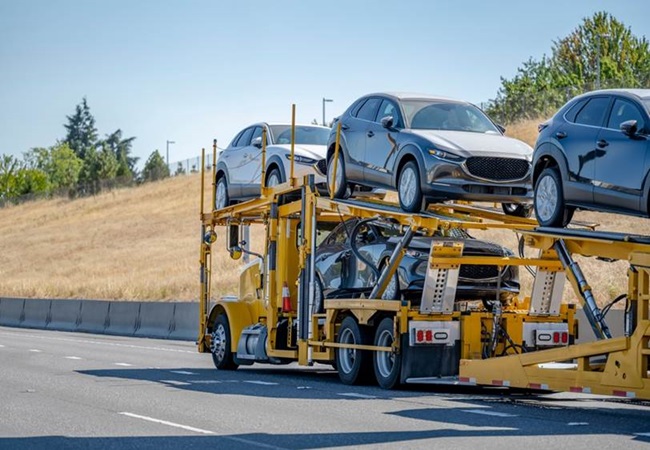Shipping cars from one location to Philadelphia for a lot of folks can be somewhat challenging, especially if it’s their first time. Whether you’re relocating, selling, or sending a vehicle to someone in Philadelphia, understanding the nuances of auto transport can ensure a smooth and stress-free experience.
If you’re interested in learning more, then in this article, we’ll explore various aspects of car shipping, offering tips to help you navigate the process efficiently.
Understanding Your Shipping Options
The first step in shipping a car is to understand the different shipping options available and choose one that best suits your needs and budget. The two main types of car shipping are open transport and enclosed transport.
Open transport, the most common and cost-effective option, involves shipping your car on an open trailer. This method is generally safe but exposes the vehicle to weather elements and road debris. Enclosed transport, on the other hand, offers more protection as the car is shipped in a covered trailer. This option is ideal for luxury, antique, or high-value vehicles but comes at a premium cost.
Choosing a Reliable Shipping Company

Choosing the right one makes all the difference in the world. Start by researching companies that offer services from your location to Philadelphia. Look for companies with good reputations, which can be verified through online reviews and ratings on platforms.
Ensure that the company is licensed and insured; you can check their registration with the Department of Transport’s Federal Motor Carrier Safety Administration (FMCSA). A trustworthy company will be transparent about their policies, provide a detailed quote, and explain their process clearly.
Getting a Quote and Understanding Costs
Once you’ve identified a few reputable companies, the next step is to get quotes. Most auto transport companies offer free quotes, either online or over the phone. Get ready to give exact information about your car, like the make, model, year, and condition, because these things affect the price.
The cost of shipping a car depends on several factors, including the type of transport, distance, size and weight of the vehicle, and the time of year. Shipping rates tend to be higher during peak moving seasons or in bad weather conditions. Find out more here.
Preparing Your Car for Transport
Preparing your car for transport is a vital step. Start by cleaning your car inside and out. This makes it easier to identify any existing scratches, dents, or damages, which should be documented for your records.
Remove personal items and valuables from the vehicle, as these are typically not covered by the transporter’s insurance. Disable the alarm system and ensure the car is in good running condition; check fluid levels, battery charge, and tire pressure. If your car is not operational, inform the transporter as it may require special arrangements for loading and unloading.
Insurance and Protection
Verify the insurance coverage of the auto transport company. While these companies are required to have liability insurance, it’s important to understand what their policy covers and if there are any deductibles. In some cases, you may want to consider purchasing additional insurance for added protection, especially if you’re shipping a high-value vehicle.
Coordinating Pickup and Delivery
When arranging for pickup, you’ll typically have a choice between door-to-door service and terminal-to-terminal service. Door-to-door service offers the convenience of having your car picked up and delivered to specific addresses, while terminal-to-terminal service requires you to drop off and pick up the car at designated locations.
Work with the shipping company to make a reasonable plan for picking up and delivering your car. Keep in mind that it’s not always possible to predict exactly when anything will happen, what with variables like traffic, the weather, and other obstacles.
Inspection Upon Delivery
Upon delivery in Philadelphia, conduct a thorough inspection of your vehicle. Compare its condition to the documentation and photos you took before transport. In case of any damage, report it immediately to the transport company. Make sure to have the Bill of Lading (the official document used to acknowledge the receipt of the car) signed both at the time of pickup and delivery.
Legal and Regulatory Considerations
When it comes to car shipping in Philadelphia, if you’re moving there, be aware of the legal and regulatory requirements regarding vehicles. This includes registration, insurance requirements, and emissions standards specific to Pennsylvania. Ensure your vehicle is compliant with these regulations to avoid any legal issues.
Conclusion
Shipping a car to Philadelphia involves several steps, from selecting the right transport method and company to preparing your vehicle and coordinating the logistics.
By understanding your options, doing thorough research, and preparing adequately, you can ensure that your car arrives in Philadelphia safely and without any hitches. Remember to stay informed, ask questions, and keep a record of all important documentation throughout the process for a successful car shipping experience.

